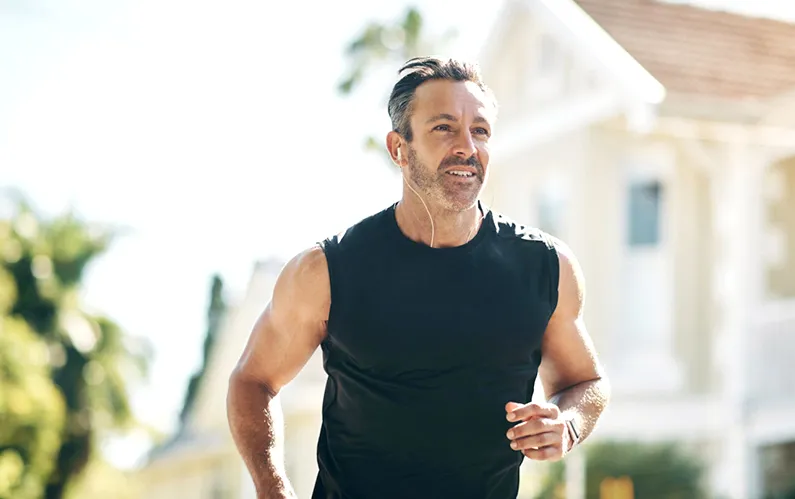Testosterone Replacement Therapy (TRT) has proven effective in addressing the repercussions of low testosterone levels, such as fatigue, poor muscle mass, and diminished libido. While TRT undoubtedly plays a significant role in restoring hormonal balance, adopting a well-rounded approach that encompasses proper nutrition, regular exercise, and stress management can enhance its benefits and promote a healthier lifestyle.
In this blog, we aim to highlight the importance of integrating holistic health practices alongside TRT in achieving optimal hormonal balance and overall well-being.
At Low T Clinic, our commitment is to provide readers with accurate, up-to-date information guided by reputable sources such as Mayo Clinic and Healthy Male. Our focus is not solely on promoting products or services but on delivering content that empowers our readers to make informed decisions about their health.
Our ultimate goal is to provide informative, engaging, and helpful content that goes beyond merely promoting services or products. We seek to empower our readers to optimise their TRT journey by embracing holistic health practices and making educated decisions about their overall health and well-being.
Tailor Your Diet: Nutritional Principles to Support TRT
A balanced diet is vital in supporting TRT and optimising hormonal health. The following nutritional principles can help enhance the effects of TRT:
1. Include healthy fats: Testosterone production relies on healthy fat intake. Examples include avocados, nuts, seeds, fatty fish, and olive oil.
2. Boost protein consumption: Consuming an adequate amount of protein can help maintain muscle mass and aid in testosterone production. Incorporate lean meats, dairy, eggs, and legumes into your diet.
3. Consume whole grains and fibre-rich foods: Whole grains and fibre-rich foods can support overall health and hormonal balance. Include options like quinoa, brown rice, and whole-grain bread.
4. Eat nutrient-dense fruits and vegetables: A diet high in fruits and vegetables provides essential vitamins, minerals, and antioxidants to maintain hormonal health. Opt for dark leafy greens, citrus fruits, and berries to maximise benefits.
5. Limit refined carbohydrates and sugars: Restricting the intake of refined carbohydrates and sugars can improve insulin resistance and support hormone balance.
Exercise for Success: Fitness Routines that Complement TRT
Integrating regular exercise alongside TRT can have a significant impact on promoting hormonal balance and enhancing physical well-being:
1. Resistance training: Strength training exercises, such as weightlifting, can increase testosterone production and maintain muscle mass. Incorporate compound exercises like squats, deadlifts, and bench presses into your routine.
2. High-Intensity Interval Training (HIIT): Short bursts of intense exercise with rest periods in between can enhance testosterone release. Choose HIIT workouts of no more than 20-30 minutes for best results.
3. Aerobic exercise: Moderate-paced aerobic exercise like jogging, cycling, and swimming can support overall health and help increase testosterone levels.
4. Stretching and flexibility exercises: Yoga, pilates, and tai chi can improve flexibility, prevent injuries, and support overall well-being.
Stress Management Strategies for Hormonal Balance
Effective stress management is essential in promoting hormonal balance and enhancing mental well-being:
1. Cultivate mindfulness: Practise meditation, deep breathing exercises, or journaling to increase awareness and build emotional resilience.
2. Develop hobbies and interests: Engaging in activities that spark joy can help alleviate stress and contribute to a healthy work-life balance.
3. Foster social connections: Build a support network by nurturing relationships with friends, family, and support groups. Talk about your concerns and share experiences to receive emotional support.
4. Prioritise time management: Create a structured daily routine that allocates time for relaxation and self-care alongside work and personal responsibilities.
Sleep Hygiene and Hormonal Health
Quality sleep is integral for maintaining hormonal balance and optimising the benefits of TRT:
1. Establish a consistent sleep schedule: Go to bed and wake up at the same time each day to regulate your body’s internal clock and improve your sleep quality.
2. Create a sleep-friendly environment: Ensure your bedroom is dark, cool, and quiet, with comfortable bedding and minimal distractions.
3. Implement a bedtime routine: Wind down before bed with calming activities such as reading, listening to soothing music, or practising relaxation techniques.
4. Limit exposure to screens: Reduce screen time at least one hour before bedtime to minimise exposure to blue light, which can negatively impact melatonin production and sleep quality.
The Importance of Personalised TRT Plans
To achieve optimal results from TRT, it is critical to develop a tailored treatment plan that addresses your unique age, medical history, and lifestyle preferences. Collaborate with your healthcare provider to incorporate targeted health habits and fine-tune your TRT plan for the best outcomes.
The road to hormonal balance goes beyond TRT alone. Embracing a holistic approach that encompasses tailored diets, fitness routines, and stress management strategies can significantly enhance the benefits of TRT and contribute to a healthier, more balanced lifestyle.
Collaborating closely with Low T Clinic, approaching the process intentionally, and staying committed to your personalised plan will pave the way towards improved well-being and overall health. Contact us today for an initial consultation on testosterone replacement therapy in Melbourne!

